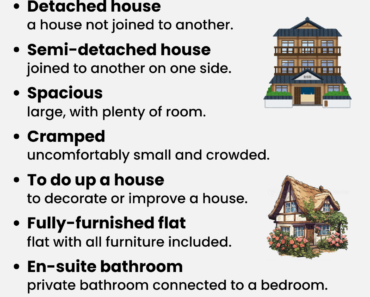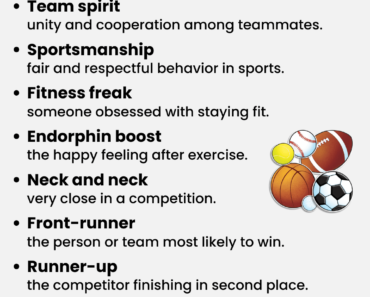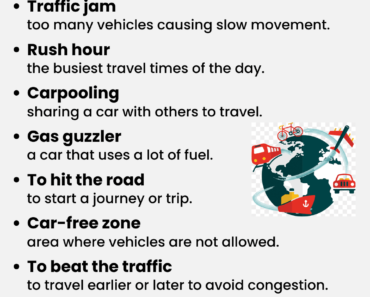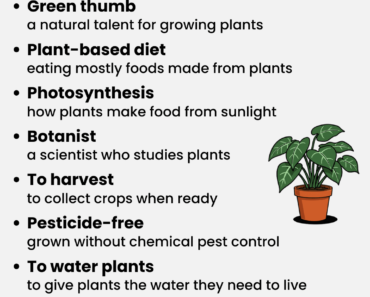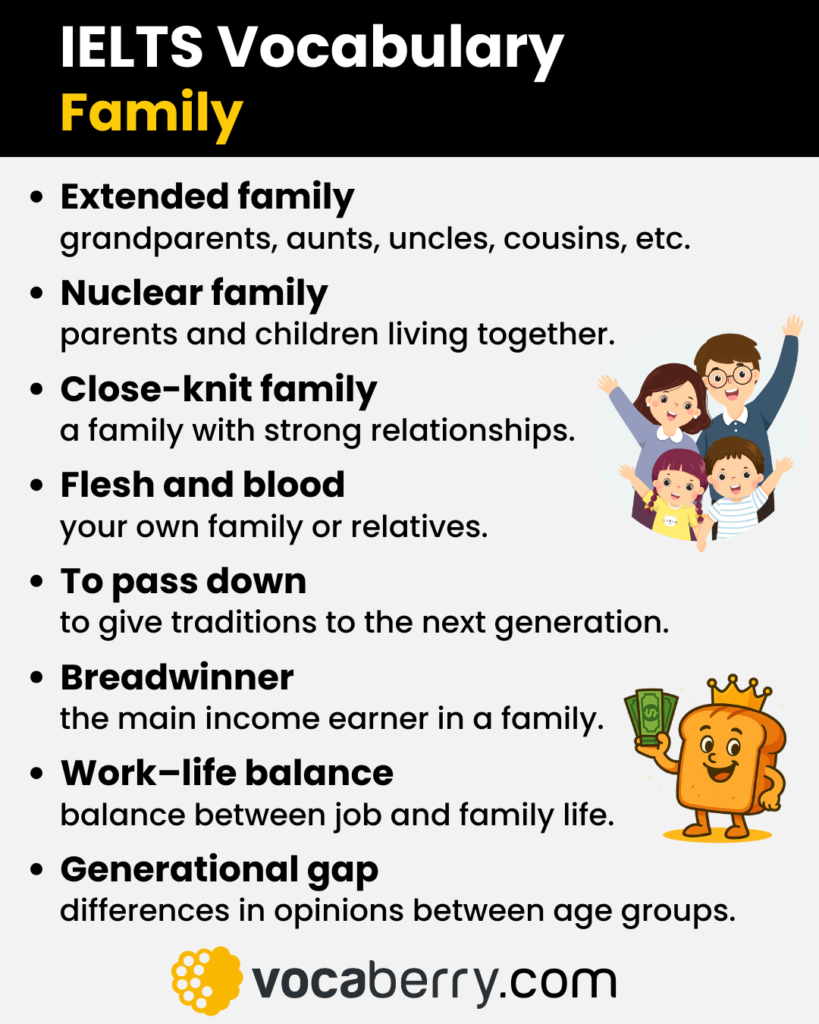
Family is one of the most common topics in the IELTS Speaking test. Examiners often ask you to talk about your relatives, family traditions, or the role of family in society. In this guide, you’ll find useful IELTS vocabulary for family with clear definitions, followed by IELTS Speaking Part 1, Part 2, and Part 3 questions and sample answers. These examples will help you see how to use the vocabulary effectively in the exam.
IELTS Vocabulary for Family
Here is some useful IELTS vocabulary for talking about family with clear definitions. These words and phrases will help you give better answers in the IELTS Speaking test.
- Nuclear family – parents and children living together.
- Extended family – grandparents, uncles, aunts, cousins, etc.
- Close-knit family – a family with strong relationships.
- Dysfunctional family – a family with poor or broken relationships.
- Only child – a child with no siblings.
- Sibling rivalry – competition between brothers and sisters.
- Single-parent family – a family with one parent only.
- Stay-at-home parent – a parent who doesn’t work outside the home.
- Work–life balance – balance between job and family life.
- Breadwinner – the main income earner in a family.
- Role model – someone whose behaviour is an example for others.
- Family bond – strong emotional connection between relatives.
- Family gathering – a meeting or celebration with relatives.
- Household chores – everyday cleaning or housework.
- Generational gap – differences in opinions between ages.
- Traditional family values – old-fashioned views about family roles.
- Modern family dynamics – changing roles in families today.
- Domestic harmony – peaceful home life.
- Parental guidance – advice from parents.
- Upbringing – the way parents raise their children.
- Discipline – teaching children rules and self-control.
- Spoilt child – a child given too much without discipline.
- Strict upbringing – being raised with many rules.
- Family resemblance – looking similar to relatives.
- Blood relative – someone related by birth.
- Next of kin – closest living relative.
- Ancestor – a family member from earlier generations.
- Descendant – a family member from future generations.
- Marriage vows – promises made at a wedding.
- Family traditions – activities passed down in a family.
- Parental leave – time off work after a child is born/adopted.
- Quality time – meaningful time with family.
- To run in the family – when a trait is common among relatives.
- To bring up a family – to raise children
- To take after someone – to look or act like a relative.
- To bring up a child – to raise and care for a child.
- To pass down – to give traditions to the next generation.
- To look up to someone – to admire a relative or elder.
- To fall out with someone – to argue and stop being friendly.
- To drift apart – gradually lose close contact.
- Black sheep – a family member seen as different or a disgrace.
- Family ties – strong connections within a family.
- Generational conflict – clashes between young and old family members.
- Flesh and blood – your family members / relatives
- Family trait – a characteristic shared by relatives
- Inherit – to receive money, property, or traits from family.
- Foster family – a family that takes care of a child not biologically theirs.
- Family tree – a diagram showing family relationships.
- Adoption – the legal process of becoming a child’s parent.
- Divorce / separation – ending a marriage.
- Custody of children – legal right to care for children after divorce.
- Co-parenting – raising a child together after separation.
- Shared custody – both parents share care and decisions.
- Sole custody – one parent has primary care/legal rights.
IELTS Speaking: Family Questions & Answers
In this section, you’ll find IELTS Speaking Part 1, Part 2, and Part 3 questions on the topic of family with sample answers. These examples show how the vocabulary can be used in your responses during the test.
IELTS Speaking Part 1 – Family
Do you have a large or small family?
I come from a nuclear family, just my parents and my sister. But we’re also close to our extended family, so we often meet our grandparents and cousins during family gatherings.
Who are you closest to in your family?
I’m especially close to my mother. She has always been a role model for me, and we share a strong family bond. I also look up to her because of her patience and dedication.
How often do you spend time with your family?
I see my parents almost every day since I still live at home, but we make an effort to spend quality time together on weekends. We share meals, watch movies, or just talk, which helps us stay a close-knit family.
What things do you usually do together as a family?
We usually have dinner together, and at weekends we sometimes go on short trips. Cooking is a big part of our routine—I often help with household chores while my father takes on the role of breadwinner.
Do you have any family traditions?
Yes, definitely. Family traditions like celebrating birthdays or national holidays together help strengthen our family ties and create lasting memories. They also keep us connected across generations, even if there’s sometimes a generational gap in opinions.
IELTS Speaking Part 2 – Family Cue Card
Describe a family member you admire.
You should say:
- who the person is
- what they are like
- what they do
- and explain why you admire them
Sample Answer:
The family member I admire most is my mother. She has always been a true role model for me, not only because of her hard work but also because of her patience and kindness. She’s part of a very close-knit family, and I think that’s where she learned the importance of supporting one another.
She has been both a homemaker and, at times, the main breadwinner of our household. When I was younger, she managed all the household chores, took care of my education, and still found the time to maintain strong family ties with our relatives. I really admire her ability to balance everything so well. It shows incredible discipline and dedication.
What I respect most is how she handles challenges. Even when there are disagreements or a small generational conflict with my grandparents, she always finds a way to bring about domestic harmony. She believes strongly in traditional family values, like respect for elders and spending quality time together, and she has managed to pass those down to me and my sister.
I admire her because she has shaped who I am today. Thanks to her guidance and upbringing, I’ve learned resilience and responsibility. To me, she is not just my mother but also someone I truly look up to, and I hope I can follow her example when I eventually raise a family of my own.
IELTS Speaking Part 3 – Family Discussion
IELTS Speaking Part 3 questions about family often ask you to compare generations, give opinions on family roles, and discuss wider issues in society.
How have family roles changed in recent years in your country?
In my country, traditional roles where fathers were the breadwinners and mothers were stay-at-home parents have shifted. Nowadays, many women also have careers, and men are more involved in household chores and childcare. This change reflects more modern family dynamics, although some households still follow traditional family values.
Do you think children should always look after their elderly parents?
Yes, I believe so. In many cultures, especially where family ties are strong, caring for elderly parents is seen as a duty. It also prevents them from feeling isolated. However, with busy lifestyles and smaller nuclear families, some people rely on care homes, which can sometimes cause a generational gap in expectations.
What are the advantages of living in an extended family compared to a nuclear family?
An extended family offers more support because grandparents can help raise children, and there is often a stronger sense of community at home. It also means shared responsibilities, which reduces stress. On the other hand, a nuclear family provides more independence and privacy, so both have their own advantages depending on lifestyle.
How important are family traditions in today’s society?
Family traditions, such as celebrating festivals or sharing meals, are very important because they strengthen family bonds and create quality time. They also help pass down cultural values to younger generations. Even though modern life is fast-paced, keeping traditions alive prevents families from drifting apart.
Do you think conflicts between family members are always negative?
Not necessarily. Of course, constant arguments can damage relationships, especially in a dysfunctional family. But sometimes, small disagreements, even a generational conflict, can encourage people to understand each other better. If handled with respect, conflict can actually improve domestic harmony in the long run.
More IELTS Vocabulary Topics
If you found this lesson useful, explore other IELTS Speaking topics to expand your vocabulary and practice with sample answers:
- IELTS Vocabulary: Accommodation
- IELTS Vocabulary: Advertisement
- IELTS Vocabulary: Animals
- IELTS Vocabulary: Art
- IELTS Vocabulary: Artificial Intelligence
- IELTS Vocabulary: Books
- IELTS Vocabulary: Childhood
- IELTS Vocabulary: Crime and Punishment
- IELTS Vocabulary: Culture and Traditions
- IELTS Vocabulary: Daily Routine
- IELTS Vocabulary: Education
- IELTS Vocabulary: Environment
- IELTS Vocabulary: Fashion and Clothes
- IELTS Vocabulary: Films
- IELTS Vocabulary: Food & Diet
- IELTS Vocabulary: Friends
- IELTS Vocabulary: Gifts
- IELTS Vocabulary: Health
- IELTS Vocabulary: Hobbies
- IELTS Vocabulary: Hometown
- IELTS Vocabulary: Money
- IELTS Vocabulary: Museums
- IELTS Vocabulary: Music
- IELTS Vocabulary: Plants
- IELTS Vocabulary: Shopping
- IELTS Vocabulary: Social Media
- IELTS Vocabulary: Sports
- IELTS Vocabulary: Technology
- IELTS Vocabulary: Transport
- IELTS Vocabulary: Travel
- IELTS Vocabulary: Weather
- IELTS Vocabulary: Work & Jobs

